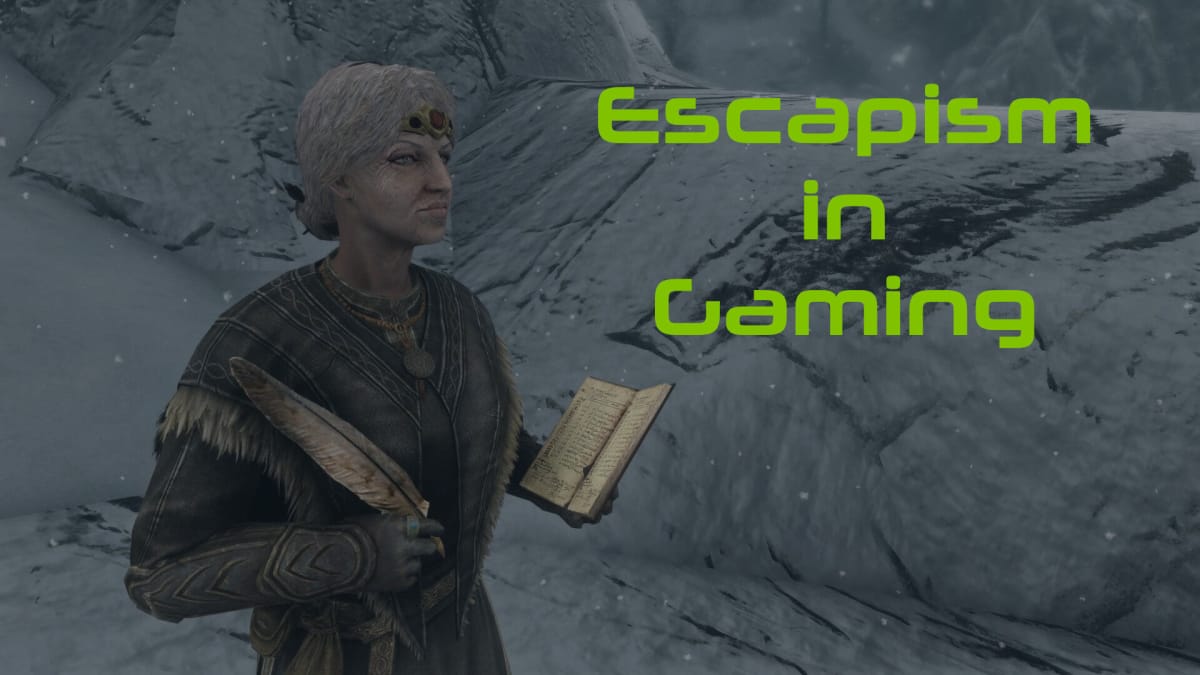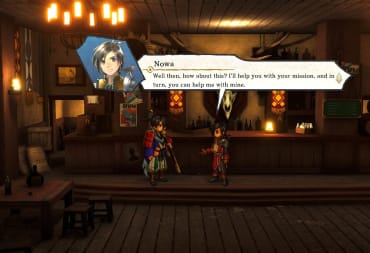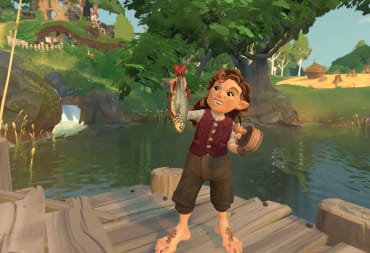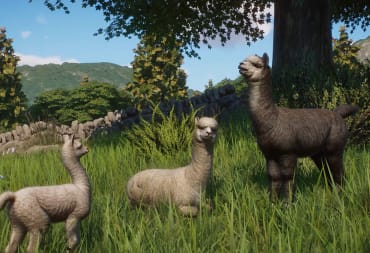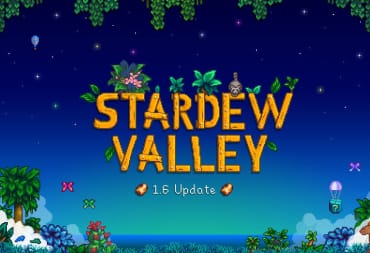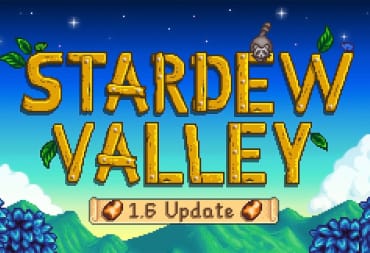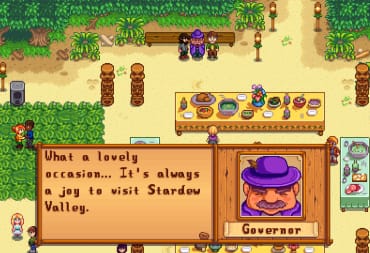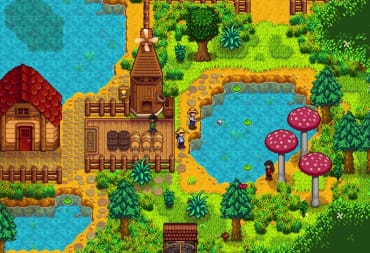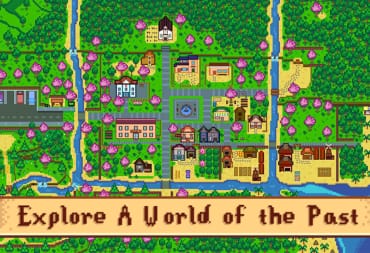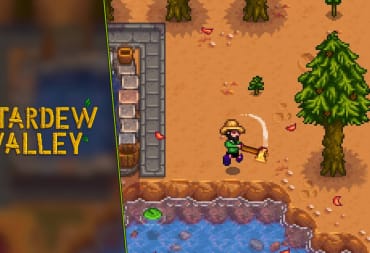To say 2020 was an arduous year would be an understatement. It thrust many of us, myself included, into situations we would never have imagined otherwise. The need for escapism was high. How could a hobby like gaming help us cope with the way things unraveled over the past year? How can we ensure that coping via gaming leads to something better, instead of denial?
Warning: I’ll be touching on terminal illness in loved ones, grief, and briefly about emotional abuse in adults, so please proceed with caution if those are sensitive topics for you. Scroll on down to the pictures if you want to gloss over those parts.
In all honesty, 2019 wasn’t very rosy for me, either. My grandmother had received a diagnosis for Amyotrophic lateral sclerosis (ALS), colloquially known as Lou Gehrig’s disease. In addition to being Mental Health Awareness Month, May is also ALS Awareness Month. This time of year holds tremendous meaning to me. ALS is a degenerative disease, with no known cure. Many patients die within a year or two of their diagnosis. She passed early March, just before the lockdown. Though relieved at an end to her pain, I’d just lost someone who was always in my corner. A robust, tough-as-nails woman reduced to a tiny, fragile person. In my mind, though, she’s still an acerbic, freewheeling purple-loving redhead who’d added a loud set of violet flame decals to her silver car.
I lost my day job a few months later. All the sad memories in my room began to pile up. I thought about my uncle’s passing from leukemia the year before, and my great-grandmother’s passing before that. With every job rejection and every emotional blow, I grew to despise the sea-green paint on the walls, the off-white molding, and even the slant in the ceiling. Communication broke down between the lockdown, tension at home, and my grief. Friendships deteriorated. I wanted to move. It wasn't the clean and easy break I wanted. Instead it became a messy affair with attempts at intimidation, personal insults, and controlling behavior. In the last few days, I didn't have any connection to the Internet, nor could I simply leave and pick up comforting books from my childhood. I turned to what I had. Skyrim and Stardew Valley were the two big ones, so it was time to conquer a province and become the economic backbone of a small town.
The Escapism of Skyrim
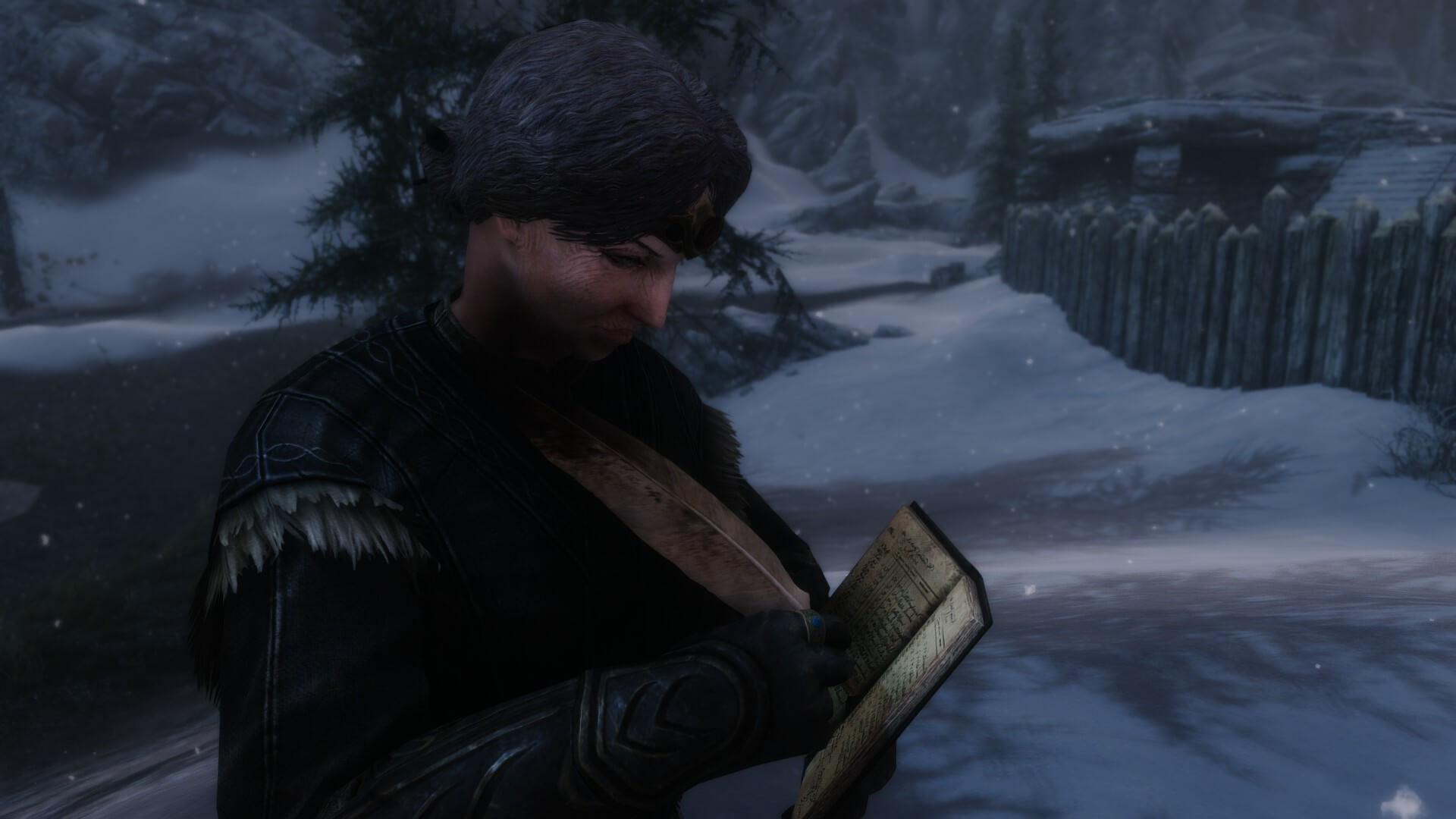
I only had so many things on my system. Skyrim Special Edition was one of the few that didn't either require an update or an online connection. I knew it would at least have enough to keep me busy for more than a few hours. I quickly accrued levels, earning several dozen in the days it took to leave. I was blasting undead left and right by the time I had to finally pack up my PC. In fact, I think I earned an honorary degree from the College of Winterhold for how much I got done.
Though I couldn’t go anywhere, the Dovahkiin was not bound by any such restrictions. I built an ice-themed Destruction mage based on a Pathfinder character of mine. Anything that wouldn’t get out of the old, crotchety witch’s way got an Ice Spike. Undead got two for flinching. I took pretty screenshots. I became the Archmage of the College of Winterhold. Solving a little girl’s murder and destroying a den of vampires was pretty sweet, too.
The escapism offered by Skyrim is unparalleled. No longer was I stuck in a 13’x12’ space feeling miserable. Instead, I was (literally) a cool old witch lady with a burning hatred for undead. I was a hulking potion-mixing Redguard beefslab with a massive greatsword or an Orc warpriest. I was even, if you believe it, a stealth archer at one point.
There’s also the semblance of raw power. Your Dovahkiin is a burgeoning demigod. Little can hope to stand in their way for long, whether it’s through raw power, trickery, or magical might. It helps that Skyrim is on everything now. Many console versions even boast some respectable mod support, though not quite to the extent of the PC versions. Of course, I had plenty of mods installed, but the base game alone still lets you do so much with it. Without any ability to look things up, it was oddly relaxing to explore things organically in a game celebrating its 10th anniversary this November. Whenever I wanted to change things up, I could build a new character with a new start.
And The Escapism of Stardew Valley
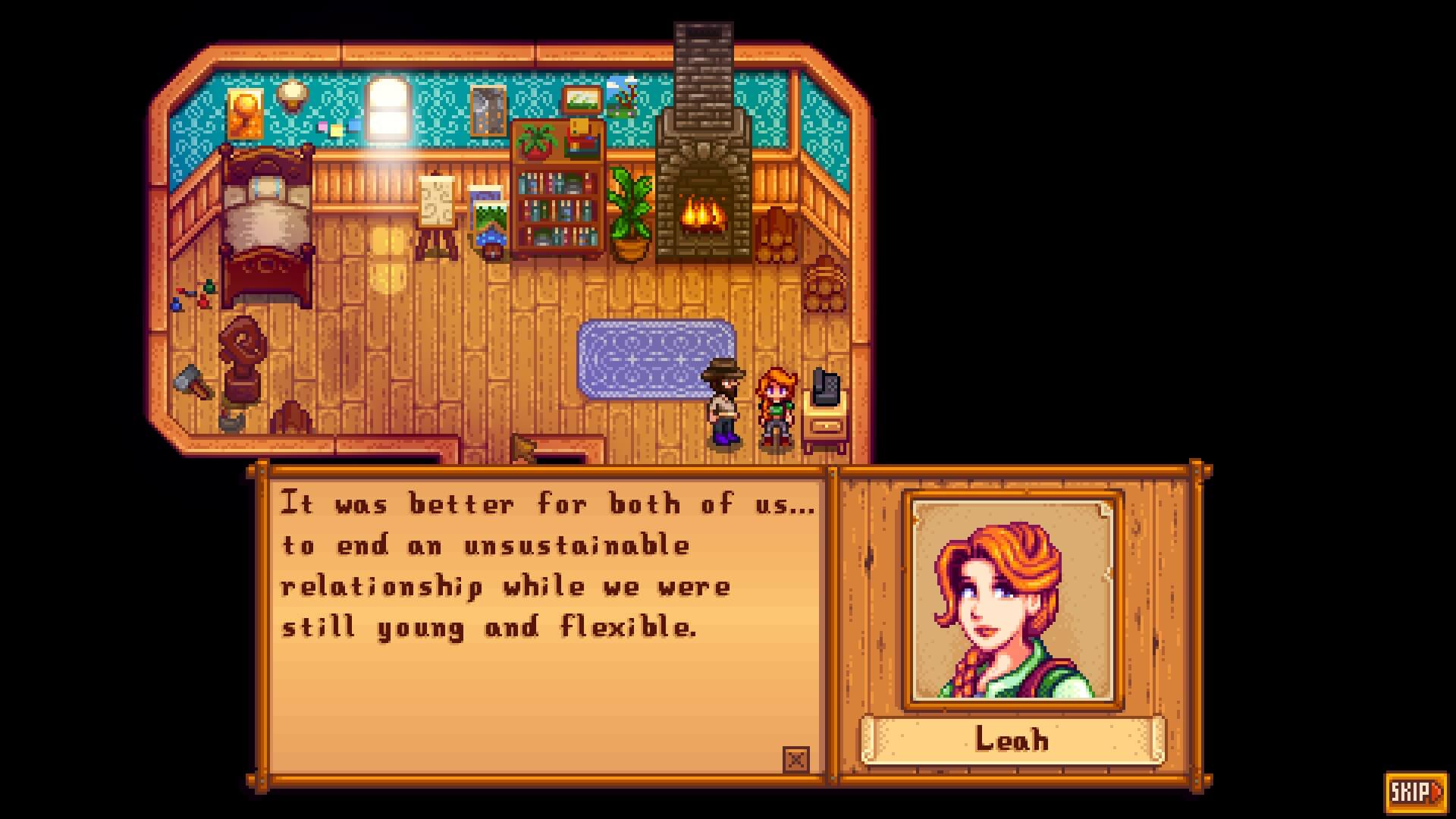
Upon tiring of the violence for a moment, I settled down in Pelican Town. With nothing else to do, I went through over two years in Stardew Valley on a new file. I dated every eligible bachelor and bachelorette in town, became a millionaire, and grew Ancient Fruit in my Greenhouse. Naturally, I got a perfect evaluation from my grandfather with everything I accomplished. The busy farm life gave me plenty to focus on. Tracking birthdays, planning the perfect gift, and watering dozens of crops by hand distracted me for hours at a time. Almost everyone has accidentally had a 12-hour binge of Stardew Valley, and it’s nothing to be ashamed of. It can and will suck hours of your life away. In the situation I found myself in, that was a blessing. So I lost myself in fixing their virtual troubles to gain some sense of control.
Though the characters aren’t real, they gave me the tools to begin to process things, heal, and move forward with my life. Listening to Alex, Sebastian, and Shane share their feelings of inadequacy, hearing Abigail and Penny yearn for something more, and helping Harvey overcome his fear of heights all gave me the courage to leave a bad situation. Elliot and Maru taught me the value in persisting through adversity and self-doubt. Sam and Emily showed me the importance of a social network you can depend on. Leah’s self-confidence and living for herself after a soured relationship resonated with me as well. Even Haley taught me that it was okay to change and work to better yourself. Evelyn, Alex’s grandmother, is still one of my favorite NPCs. She isn’t nearly the Belgian spitfire that was my departed grandmother, but her presence was still comforting.
Having a goal to accomplish kept me focused. Stardew Valley lets you play at your own pace, and with little else to do, I built a farming empire and dated 12 people. In essence, I was vicariously living the under-30 dream life. Neither Stardew Valley nor Skyrim were necessarily the perfect coping tools. It could have probably been any game that would hold my attention for a few dozen hours. I found myself running through the original PS2 release of Kingdom Hearts as well, after all.
The Consequences of Escapism
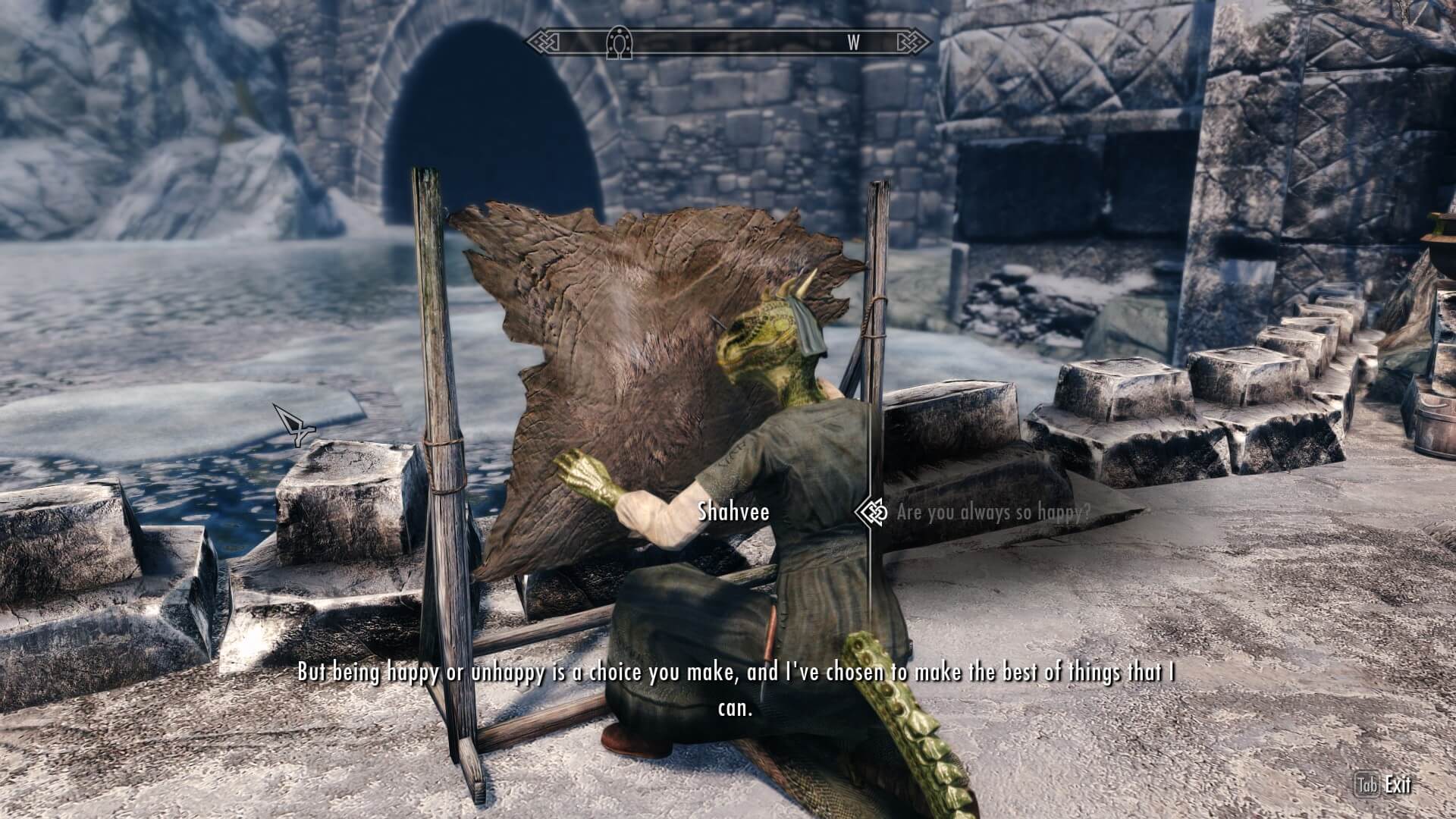
Like any activity, moderation is extremely important. Gaming for hours on end can lead to repetitive motion injuries, eye strain, and even addiction. While there’s plenty of fear-mongering surrounding escapism in video games, in my experience it served as both a grounding mechanism and a distraction. Jane McGonigal, PhD, in a 2013 presentation (available on this blog) emphasized the importance of the mindset for gaming. Her concept of self-expansion focused on positive emotions and experiences, while self-suppression focused on avoiding negatives. Dr. McGonigal also noted it could be difficult to tell the difference sometimes. The physical stimulus and the activity were both the same, but the mentality behind escapism varied.
Speaking anecdotally, as tempting as it certainly was, I couldn’t ignore the underlying problems of my living situation through games. I fell into a routine upon my return: wake up, get my single meal for the day, pack things into tubs for a while, then play something. I’d spend about 30 minutes properly packing a bin, then play Stardew Valley for an hour or so. I did what I could to sweep and clean and throw out trash. The friendships were certainly over, ending in an ugly way, but I came to accept that part of my life and move on. It wasn't my responsibility to fix or parent or scold them, nor to participate in their lives. Not my circus, not my monkeys. My grandmother's death still hurts, too, but I've developed an inner peace by no longer being in an environment that was bad for me. Games just acted as a balm to take the edge off.
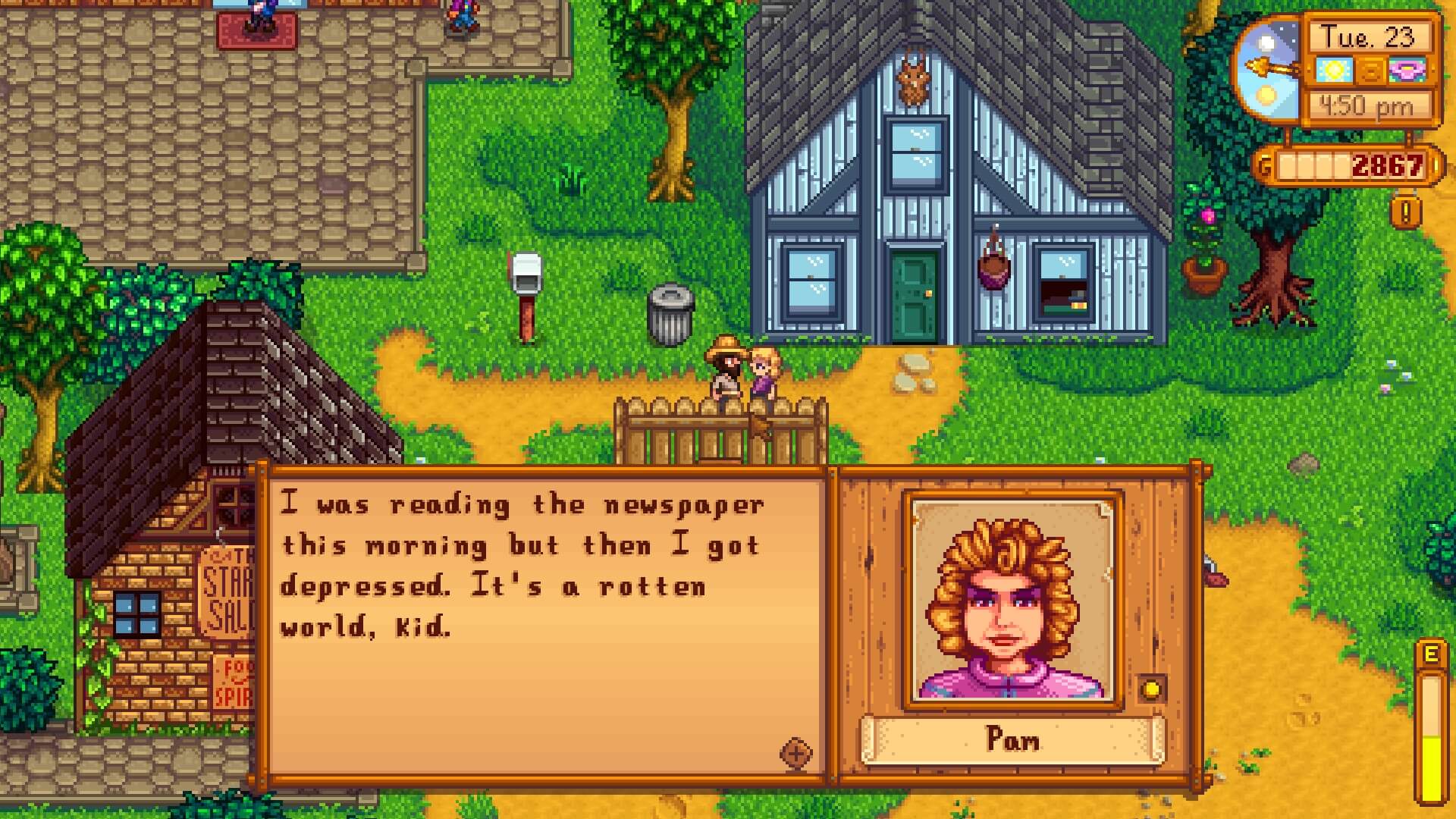
Gaming in that situation was simple positive reinforcement. By taking the necessary steps to make moving easy, I rewarded myself with something low-impact and relaxing. Self-suppression in this instance wasn’t necessarily a bad thing. It turned me away from the reality of my situation for an hour or two. When I pulled myself out, I felt energized and empowered to go through with my decision. A literature review by Fiordalisa Melodia, Natale Canale, and Mark D. Griffiths published in the International Journal of Mental Health and Addiction last November highlights the apparently contradictory ideas pretty nicely.
Overall, problematic life events or stressful situations can motivate individuals to go online and use specific applications, such as videogames, to fulfill unsatisfied needs or relieve dysphoric mood states (Kiraly et al. 2015). It is worth noting that this can lead to both positive and negative outcomes, that is, positive when the compensation is successful (feeling better and where applications have been used for short time) and negative when this mechanism becomes persistent and the intensity of the use compromises other areas of an individual’s life. Furthermore, these are not necessarily mutually exclusive.
It was an experience I don’t want to repeat, but I grew tremendously as a person. I (unofficially) finished NaNoWriMo for the first time that November. My new environment has made me much happier. I’m taking classes again, and I’m healing. I don’t feel beaten down, confined, and exhausted like I was at the same time last year, or even six months ago. At the time, I was convinced nothing would ever get better. I wasn’t sad or anything, I just felt empty, like a discarded shell. Earlier this month, TechRaptor partnered with Safe In Our World, a charity with a focus on mental health in gaming. Whether it’s a low point in your life or a constant struggle, the need for mental health is important.
Escapism, like any coping mechanism, has its healthy and unhealthy implementations. It is something to lean on for a short while, to help the brain rest and recharge. It isn't a tool to be used to ignore foundational issues, whether interpersonal, financial, or otherwise. Games have rules and clear outcomes, providing some much-needed structure in a world that seems to constantly teeter on the brink of complete chaos.
How have you used gaming to overcome hardship? Do you have a special game that helps you remember a departed someone? Share with us below, or drop us a line on social media.
Have a tip, or want to point out something we missed? Leave a Comment or e-mail us at tips@techraptor.net
